Review: Wonderful Music, Marvelous Performances in Met's Season Debut of ROSENKAVALIER
Lise Davidsen Hits Mark as Marshallin, with Hankey’s Octavian, Morley’s Sophie, Groissbock’s Ochs Fine Companions in Carsen's Production
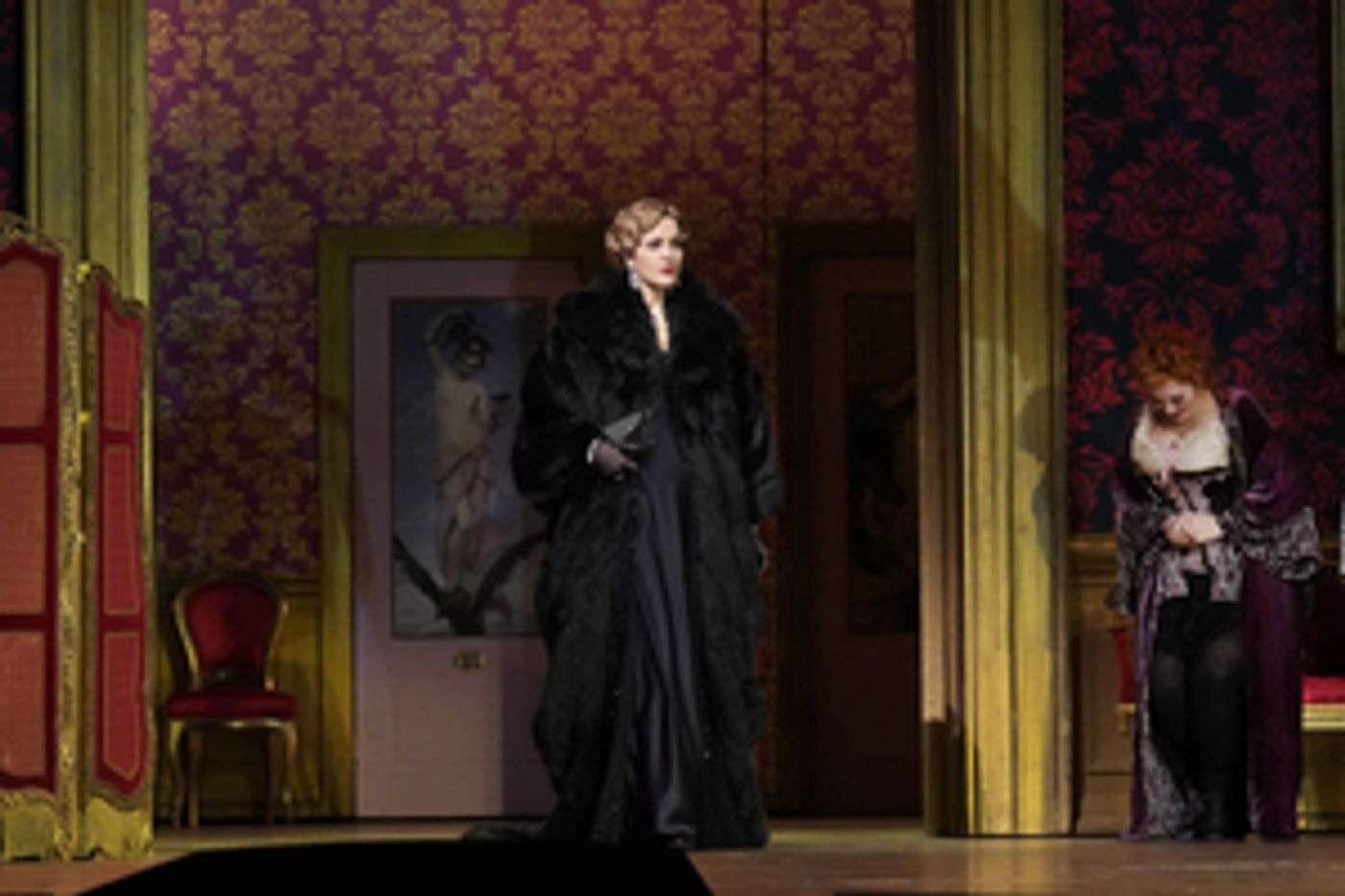
Ken Howard/Met Opera
It took Richard Strauss only about 100 minutes apiece (with no breaks) to tell the lurid tale of SALOME and the tragedy of ELEKTRA.
So why on earth did he and librettist Hugo von Hofmannsthal need almost five hours (including two intermissions) to tell the personal stories of an "aging" (she was really in her 30s, despite the grand dames who have usually sung the role) noblewoman, a couple of teenagers in love and a repulsive sexual predator?
And that's not even considering a great cast in Robert Carsen's production (staged now by Paula Suozzi)--and it was this week, with the wonderful Lise Davidsen as the Marshallin, Samantha Hankey as the horndog Octavian, Erin Morley as the headstrong Sophie and bass Gunther Groissbock as the lecherous Baron Ochs. Or the often-spectacular score.
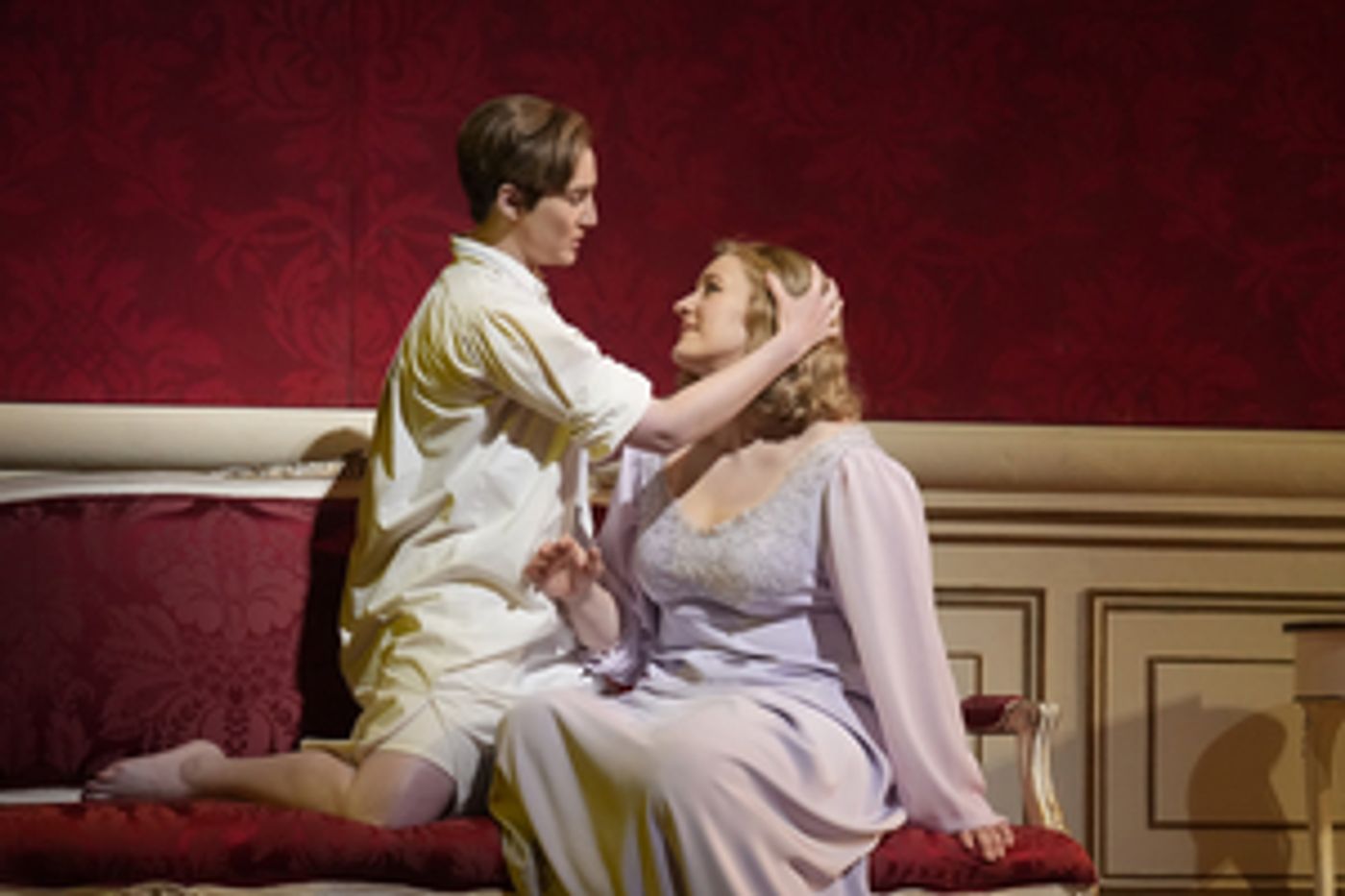
Ken Howard/Met Opera
Yet, DER ROSENKAVALIER remains for me a postcard blown up to poster size--one where the most famous set-piece is a good three-plus hours into the work (the well-loved trio for the women), though Strauss's stirring Viennese waltz leitmotif runs through it. I'd rather hear a double-bill of ELEKTRA and SALOME, anytime. They not only thrill me, but I'd still be done with lots of time to spare.
Of course, I'm in a minority here. If I'd made my opinion known at the performance I saw the other night, I might have been beaten senseless. It's the composer's most popular opera by a longshot, with a record of some of the greatest singers and conductors taking up the gauntlet for its place as one of the awe-inspiring centerpieces of opera houses everywhere, here conducted with elan by Simone Young.
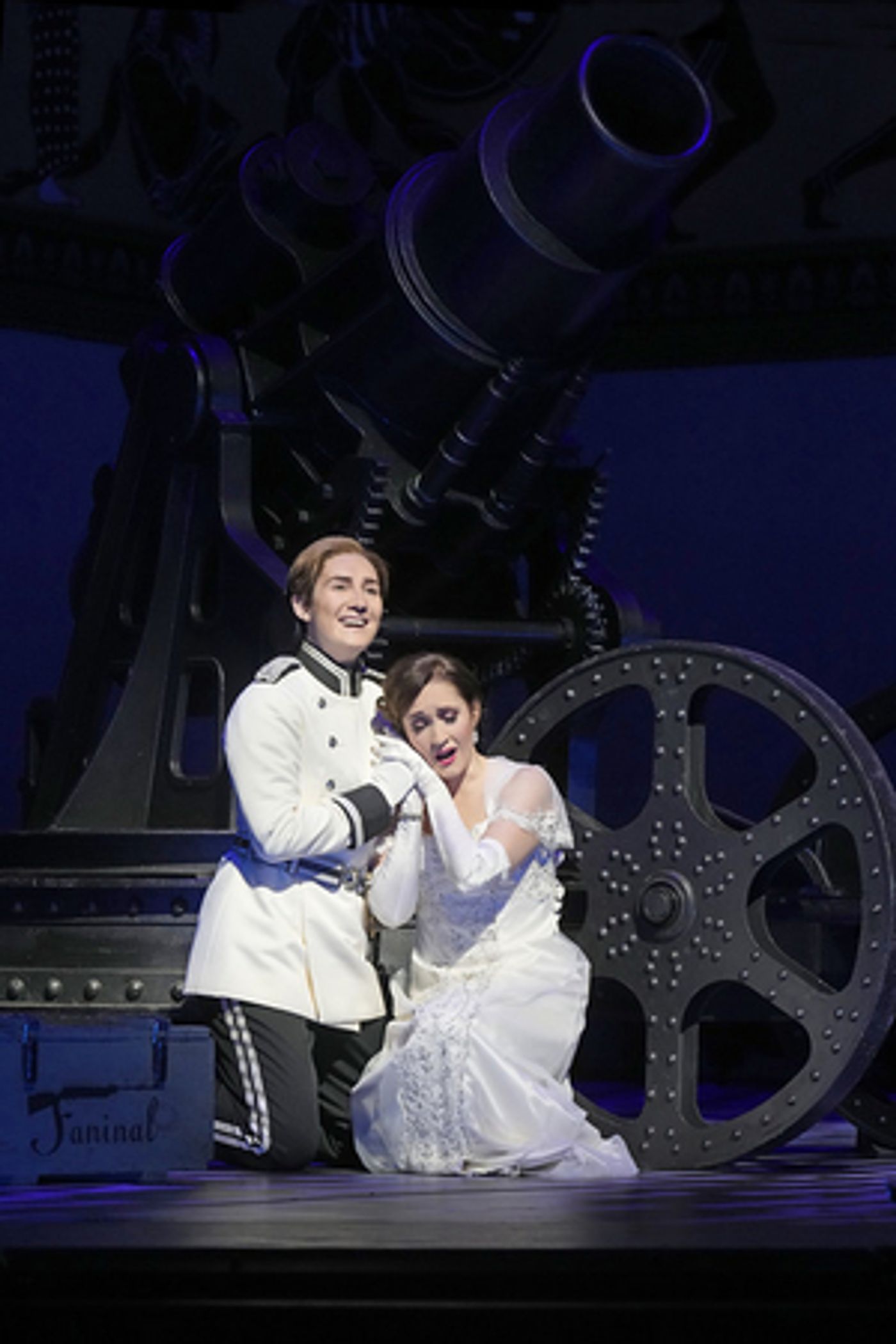
Ken Howard/Met Opera
It's hard for soprano Davidsen not to take center stage, with her towering form, attractive mien and voluptuous sound. I must say it was a little hard to think of her being considered "over the hill," even with the dowdy hair she's given in the first act, though that was certainly the way of her time.
Even with Davidsen so much taller than she, mezzo Hankey was a good match and you could see the chemistry between them. Her big, scintillating voice was hard to ignore and she got the teenage angst (and fickleness) just right. I've come to treasure soprano Morley's amazing ability to sing a variety of roles and make them all sound different--from Handel's Morgana in ALCINA to Aucoin's Eurydice at the Met (and here, of course). She and Davidsen are two of the current winners of the "Opera News" awards announced recently.
The director's take on Baron Ochs changes the dynamics a bit from many productions, especially with a singing actor as good as Groissbock in the part.
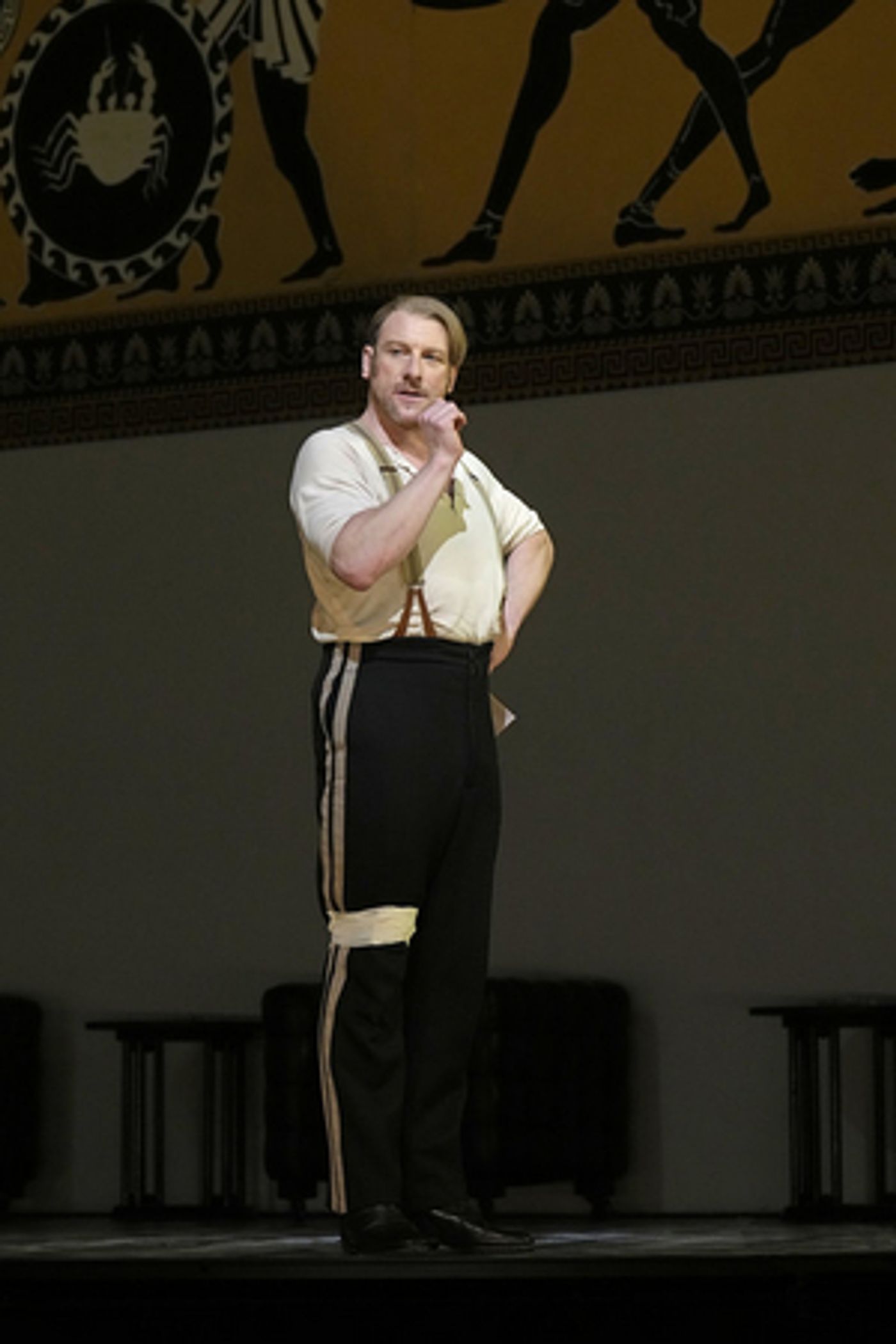
Younger, more physically attractive than the casting of the role usually finds him, Groissbock is nonetheless as big an ass and as repulsive as the role demands. I think perhaps he's been taking on too much lately, with his role as King Heinrich in the Met's current LOHENGRIN (where he sounded in excellent voice) taking its toll on his low notes in Ochs's music. Another holdover from LOHENGRIN, baritone Brian Mulligan, however, made much of the role of Sophie's father, Herr von Faninal.
Rounding out the principals was excellent work from mezzo Katharine Goeldner and tenor Thomas Ebenstein as the conspirators Annina and Valzacchi, tenor Rene Barbera as the Italian Singer and, most particularly, soprano Alexandra LoBianco as Sophie's companion, Marianne. Bravo to the cast of comprimarios who peopled the Act I scene in the Marshallin's boudoir and, of course, the great Met chorus under Donald Palumbo.
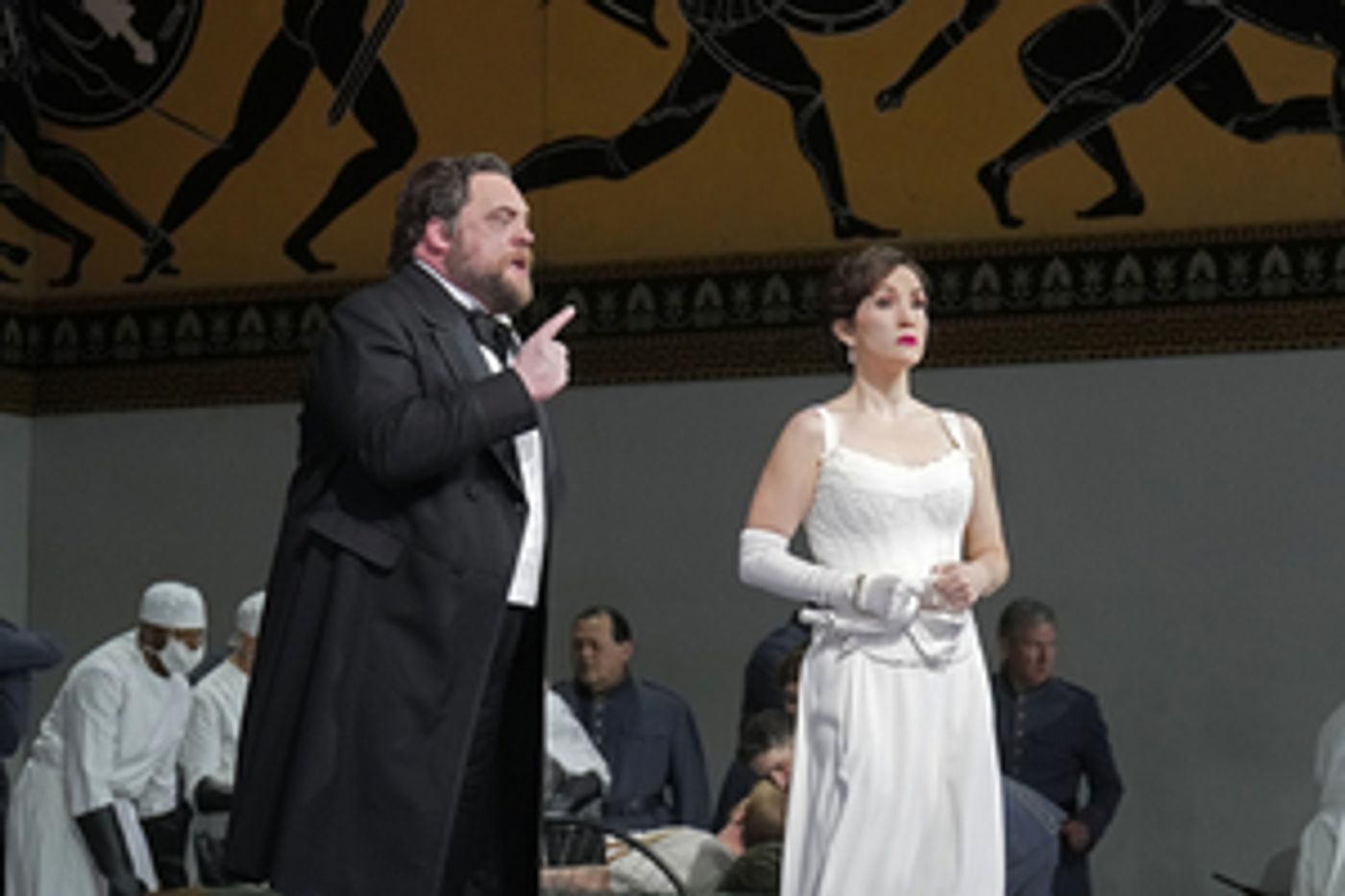
Carsen's production has been updated from the mid-18th century to the decade predating World War I, with sets by Paul Steinberg, costumes by Brigitte Reiffenstuel, lights by the director and Peter van Praet, with choreography by Philippe Giraudeau. (Of all the elements in his direction, the moment when Octavian leaves the Marshallin's bedroom, with its coup-de-theatre of opening doors, will be the one I remember.) The times were changing, indeed, with the outwardly daring attitudes of the Marshallin and Sophie more explicable than they might have been in the original.
If DER ROSENKAVALIER is your thing, then get thee to the Met for this one. For more information about the further performances--April 7, 11 and 20 at 7pm and the matinee on April 11 at 12noon--see the Met's website.
Reader Reviews
Videos

